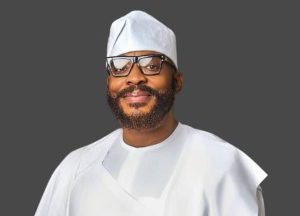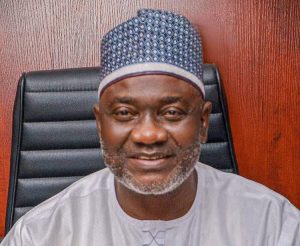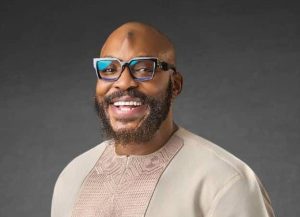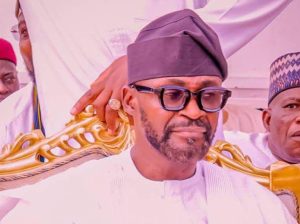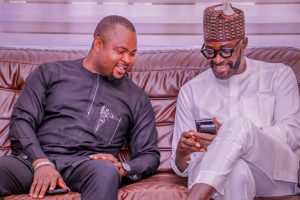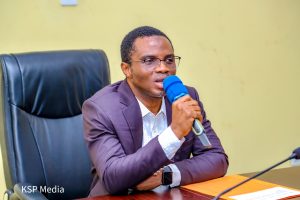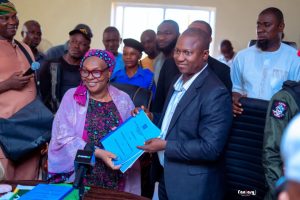Atiku: Possible end to a lifetime ambition?
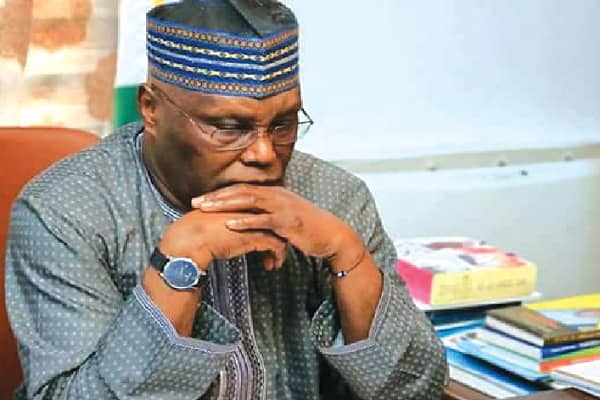
STEPHEN ANGBULU writes about the possible end of a 30-year attempt at the presidency by the Peoples Democratic Party’s presidential candidate, Atiku Abubakar, after losing the just-concluded presidential election
In the early hours of Wednesday, March 1, 2023, the All Progressives Congress presidential candidate, Bola Tinubu, and his closest allies erupted in celebration after the Independent National Electoral Commission declared him the winner of the presidential election.
According to the INEC Chairman, Prof Mahmood Yakubu, the former Lagos State governor polled 8,794,726 votes to beat 17 other presidential candidates in the February 25 polls.
Amongst the 17 was the Peoples Democratic Party’s Atiku Abubakar, who garnered 6,984,520 votes and the Labour Party’s Peter Obi, who came third with 6,101,533 votes.
INEC’s announcement, once again, truncated the chances of Atiku, who has vied for Nigeria’s highest office in six election cycles spanning three decades. Now 76, the former Vice President will be 80 in the next election, making many of his supporters and opponents alike to wonder if he would have the opportunity of contesting the election again.
Before 1999
The Adamawa-born businessman served as the Vice-President of Nigeria from 1999 to 2007. But despite his long political career, rich network across the country and strong determination, the presidency has slipped out of his hands every election cycle.
Abubakar first ran for the presidency in 1993 under the Social Democratic Party but lost to Moshood Abiola in the primary. However, Abiola’s mandate was truncated when the military dictator, General Ibrahim Babangida (retd.), annulled the 1993 elections, popularly termed Nigeria’s freest and fairest election to date.
Due to protests that followed the cancellation, Babangida hurriedly handed over to Ernest Shonekan as the head of the constripted Interim National Government. However, the ING was sacked by General Sani Abacha; ending the Third Republic. Abacha’s five-year dictatorship meant that no political structure could rear its head, and therefore Atiku and many politicians went underground.
Some, such as the winner of the annulled elections, Moshood Abiola, were swallowed by the regime laced with flagrant violations of human rights and political assassinations.
However, Abacha’s sudden death in 1998 and the eventual return to civilian rule tossed Atiku back into national politics. He joined the Peoples Democratic Party and was selected as the running mate to Chief Olusegun Obasanjo, who won the presidency in the 1999 and 2003 elections.
Although he retained his seat throughout Obasanjo’s eight years in office, 1999 to 2007, their relationship was fraught with tension and conflict during the second term. About two decades later, the former President would describe choosing Atiku Abubakar as his vice as a “mistake.”
Meanwhile, prior to his selection as Obasanjo’s running mate, Atiku had won the governorship election in Adamawa State, but had to give up the seat before inauguration so he could join Obasanjo at the federal level. Eventually, their relationship went sour close to the end of their tenure.
“One of the mistakes I made was picking my number two when I wanted to become the president. But because it was a genuine mistake, God saved me,” Obasanjo told students at a National Exhibition and Awards organised by Students for the Advancement of Global Entrepreneurship in Abeokuta.
Among many reasons for Obasanjo’s statement was the former VP’s vehement resistance to his third term ambition. By December 2006, the relationship between both men had deteriorated so much that Obasanjo declared the office of the Vice-President vacant.
Consequently, Atiku, who wanted to succeed Obasanjo, could not secure the latter’s endorsement under the PDP during the 2007 election season. Obasanjo however opted for Umaru Yar’Adua, who is now late. However, in September 2007, Atiku looked elsewhere to realise his ambition; he clinched the Action Congress presidential ticket months after he defected to the party.
However, he was defeated by the PDP’s candidate, Umaru Yar’Adua. Although Abubakar challenged the result of the 2007 election in court, the Supreme Court eventually dismissed his case. Yar‘Adua had also admitted that the election that brought him into office was flawed, but the apex court upheld his election.
In 2009, Atiku returned to the PDP and contested for the party’s presidential ticket in 2011 but lost to Goodluck Jonathan, who went on to win the presidency.
Not one to give up, Atiku, in 2014, dumped the PDP and joined the All Progressives Congress, a party that had newly emerged from the fusion of the Action Congress of Nigeria, All Nigeria Peoples Party, Congress for Progressive Change, and an arm of the All Progressives Grand Alliance.
He contested the party’s presidential ticket in 2015 but was defeated by the current President, Major General Muhammadu Buhari (retd.), who went on to win the presidential election.
The Waziri Adamawa went back to the PDP, his former political base, in 2018 and contested the party’s presidential ticket in 2019. This time, he emerged as the party’s candidate. However, despite the endorsement by Obasanjo who had serially opposed his ambition, Atiku lost again to the incumbent president, Buhari.
Following his 2019 loss, Atiku seemed to have overcome his urge for “party hopping.” Since 2019, he stayed put in the PDP, galvanising his structure ahead of the 2022 presidential primary elections.
This time, he went head-to-head with 16 other aspirants vying for the ticket. They include Teriela Oliver, the only female aspirant in the race; governors Aminu Tambuwal of Sokoto State; Nyesom Wike of Rivers State; Bala Mohammed of Bauchi State; and Udom Emmanuel of Akwa Ibom State; as well as investment banker and economist, Mohammed Hayatu-Deen; former Anambra State governor, Peter Obi; and former Senate President, Anyim Pius Anyim.
Others were former Senate President, Bukola Saraki; former Ekiti State governor, Ayo Fayose; ex-President of the Pharmaceutical Society of Nigeria, Sam Ohuabunwa; a United States-based medical doctor, Nwachukwu Anakwenze; Publisher, Ovation Magazine, Chief Dele Momodu; former Speaker of the Abia State House of Assembly, Cosmos Ndukwe; Charles Ugwu and Chikwendu Kalu.
Before the primary, Obi eventually pulled out of the contest and joined the Labour Party where he emerged as the party’s presidential candidate.
On May 28, 2022, Abubakar polled 371 votes to emerge as the presidential candidate of the PDP. He defeated major contender and Governor of Rivers State, Nyesom Wike, who scored 237 votes.
Atiku and G-5 governors
With the primaries behind him, the former Vice-President had to solidify support from among party members and other aspirants, a task he would have succeeded at but for Wike who mobilised others to join his resistance to Atiku’s success.
Embittered by his defeat, the Rivers helmsman launched a tirade of media attacks on those he called “our enemies”, a tag he gave Atiku and his associates.
In the following months, the PDP’s internal structure was ravaged by episodes of infighting even as Wike refused to stomach his loss to Atiku.
Wike, a former Minister of Education, maintained that political power should shift to the South. A narrative that sat quite well with the governing party, APC, which had elected a presidential candidate from the South-West, a former Lagos State governor, Bola Tinubu.
Wike also called for the removal of the PDP chairman, Iyorchia Ayu. He argued that with the candidate being from the North, it was only fitting to have the chairman of the party from the South. But Wike was not standing alone. Four other aggrieved governors, collectively known as the G-5, were with him. They include Seyi Makinde of Oyo State, Okezie Ikpeazu of Abia State, Samuel Ortom of Benue State and Ifeanyi Ugwuanyi of Enugu State.
The state chief executives also washed their hands clean of the party’s presidential campaign, insisting that Ayu must step down as the National Chairman of the PDP if they must support the candidate. Pleas from party members, the Board of Trustees led by Adolphus Wabara, and other concerned Nigerians for both sides to shift grounds for the sake of the party, but the moves failed.
Several attempts were made to reconcile these critical party structures before the February 25 elections, but mid-February, only days before the presidential elections, Wike said neither he nor the G-5 was open to reconciliatory moves. He argued that the timeframe for resolving the conflict was “over,” and he will not “sit down with anybody again.”
“No, we can’t do that; it’s over! We have said it and there is nothing anybody can do about it now. They believe they can win the election. I am not ready to sit down with anybody again,” the governor said during a media chat in Port Harcourt, the Rivers State capital.
Wike also said he had told indigenes of Rivers State who to vote for, and they would vote for the presidential candidate. Indeed, that candidate turned out to be Tinubu of the APC, as revealed in the election results, where the party garnered 231,591 votes and the PDP polled 88,468 votes.
Unexpected third force
While the PDP grew weak from internal conflict, a third force was stirring. Sensing a slim chance of clinching the PDP ticket, Peter Obi, had long defected to the Labour Party on May 26, 2022, where he became the opposition’s biggest nightmare.
In the ensuing months, he sparked a cult-like following of predominantly youths self-christened as ‘Obidients’. Known for his frugal personality and for transforming the educational landscape of Anambra State among other accomplishments when he served as governor, Obi appealed more to Nigeria’s teeming youths who said they were tired of recycling the old leadership.
Although his Labour Party did not have a deep penetration across the 36 states, it polled over six million votes nationwide in the just concluded elections, defeating the APC and the PDP in some of their strongholds. A classic example was Obi’s victory in Lagos, where he defeated Tinubu’s APC in his political base in the presidential election.
With Obi, a PDP vice-presidential candidate in the 2019 elections, out of the PDP, those votes, experts say, would have buoyed the PDP’s chances of victory in last Saturday’s election.
Also, a former Governor of Kano State, Rabiu Kwankwaso, who ran on the New Nigerian Peoples Party ticket, doused the PDP’s chances.
Kwankwaso, an erstwhile PDP member who defected to the APC in 2015, and then back to the PDP in 2018, shares a similar party loyalty pattern to Atiku’s. He later left the PDP in April 2022, settling for a lesser-known New Nigeria Peoples Party, which has gained some popularity.
Atiku’s political journey
Put together, the PDP’s internal crisis, which it failed to resolve before the elections, and an overwhelming third force dealt a significant blow to Abubakar’s victory at last Saturday’s polls. However, his long-term electoral defeats are linked to his political opportunism that has seen him move back and forth across parties in the past three decades.
Some analysts argue that his serial defection across parties had made it difficult for him to build a loyal, solid and steady political base required to win elections in the world’s most populous black nation.
Perhaps no one holds this view more strongly than the Director-General of the Voice of Nigeria and APC Chieftain, Osita Okechukwu, who claimed that Atiku’s contradiction of electoral principles, his desperation for power and alleged indiscretion displayed before the primary elections led to the PDP’s loss.
He added, “He (Abubakar) killed PDP because of his indiscretion, his desperation and the internal contradictions. This is a man that, in 2014, left PDP at Eagles Square and defected to APC on the premise that the then President Jonathan was breaching the zoning convention or rotation between the North and South, and that it was the turn of the North.
“Now, after a northerner won the election and is about completing eight years, that same rotation or zoning convention that he held as a principle, he violated it and used his wherewithal to muzzle himself to become a presidential candidate of the PDP, thereby swimming against the country’s mood and breaching the PDP Constitution.”
According to him, the PDP’s chances would have been bolstered had the former vice-president rallied behind the Labour Party candidate, Peter Obi, at a time when the party constitution favoured a southerner.
Citing the biblical principle about the divided house failing to stand, a Public Affairs Analyst, Mr Jide Ojo, who spoke to our correspondent, said a divided PDP was a ready prey for the APC.
He noted, “I’m saying that Obi, Kwankwaso and the G-5 governors were destiny helpers to Bola Tinubu. You know, a house divided against itself cannot stand.
“It was Chinua Achebe’s proverb in Things Fall Apart that says ‘when brothers fight to death, a stranger will inherit their father’s properties.’ That is exactly what has happened. If Peter Obi did not leave PDP in May 2022, if Kwankwaso did not leave, if the G-5 governors were intact, and worked for Atiku, it would have been a walkover for Atiku.
“Unfortunately, these variables worked against him. In 2019, he and Peter Obi were presidential and vice-presidential candidates. If he had repeated that, it would have been a very sellable candidacy. Unfortunately for them, they went their separate ways,” he said.
Too old to run?
If the judiciary upholds Tinubu’s victory, since Atiku and Obi have begun the process of challenging the outcome of the election at the tribunal, which would likely end up in the Supreme Court, a major obstacle to Atiku’s chance of trying again might be his age, at what time he would have clocked 8o.
Though the Nigerian Constitution does not place a cap on the maximum age of aspirants for political offices, many people believe that he might have become too old to toss his hat into the ring by 2027.
Speaking further, Ojo expressed doubts about a possible run by Atiku in the 2027 presidential elections.
He said, “I’m not sure he would want to return at 80 to be President of Nigeria. He is already 76 years, and at 76, he is even considered to be an ancestor by some sections of the Nigerian citizenry.
“So this is his last bus stop, politically speaking. That’s why he will throw everything into this mandate retrieval that he is doing now, going to court to see the possibility of convincing the court that he won.”

